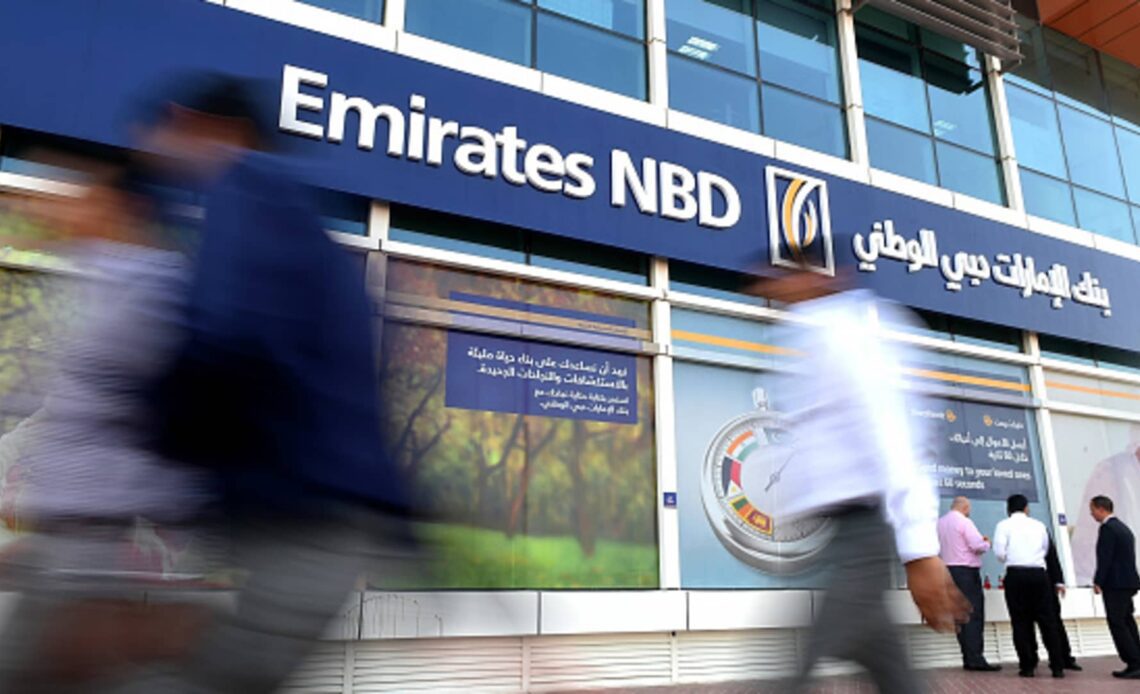General view of Emirates NBD Bank on January 3, 2017 in Dubai, United Arab Emirates.
Tom Dulat | Getty Images
DUBAI, United Arab Emirates — Banks with exposure to Turkey have faced losses ever since the country’s currency began steeply depreciating in 2018; now, lenders in several oil-rich Gulf states in particular are set to take a hit in the next year because of their links to the country, according to a recent report by ratings agency Fitch.
Banks in the Gulf Cooperation Council — that’s Bahrain, Kuwait, Oman, Qatar, Saudi Arabia and the United Arab Emirates — with Turkish subsidiaries had to adopt “hyperinflation reporting” in the first half of 2022, Fitch wrote this week, as cumulative inflation in Turkey over the last three years surpassed a whopping 100%.
Fitch calculates that GCC banks with Turkish subsidiaries posted net losses of roughly $950 million in this year’s first half. Among the hardest hit were Emirates NBD — Dubai’s flagship bank — and Kuwait Finance House, the second-largest bank in Kuwait. Turkish exposure for Kuwait Finance House and Emirates NBD is 28% and 16% of their assets, respectively. Qatar National Bank was also among those affected.
“Fitch has always viewed GCC banks’ Turkish exposures as credit-negative,” the ratings firm wrote. “Turkish exposures are a risk for GCC banks’ capital positions due to currency translation losses from the lira depreciation.”
The lira has lost 26% of its value against the dollar year-to-date, making imports and the purchase of basic goods much more challenging for Turkey’s 84 million residents.
Why is Turkey’s currency falling?
This time five years ago, one dollar bought roughly 3.5 Turkish lira. Now, a dollar buys about 18 lira. The slide began as Turkey’s economy grew rapidly but its central bank declined to raise interest rates to cool rising inflation. That and things like a worsening current account deficit, shrinking foreign exchange reserves and rising energy costs — plus occasional spats with the U.S. that nearly resulted in sanctions on Turkey — pressured the currency further.
Turkish lira and U.S. dollar
Resul Kaboglu | NurPhoto via Getty Images
Economists overwhelmingly blame Turkish President Recep Tayyip Erdogan, who has vocally rejected the idea of raising rates and has called them the “mother of all evil,” and who investors blame for throttling the central bank’s independence.
If a central bank chief went against Erdogan’s policy of keeping rates low, they were…
Click Here to Read the Full Original Article at Top News and Analysis (pro)…


